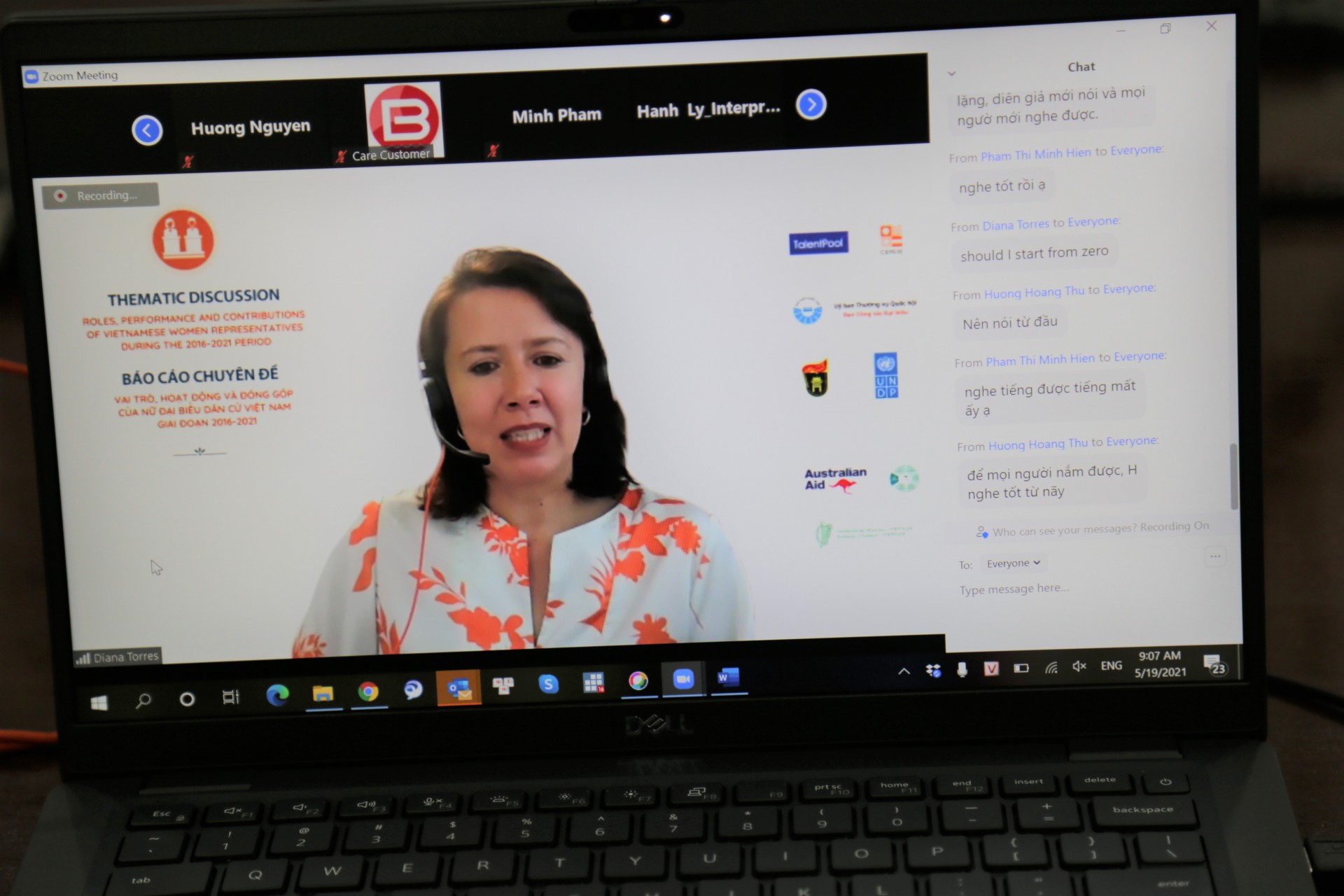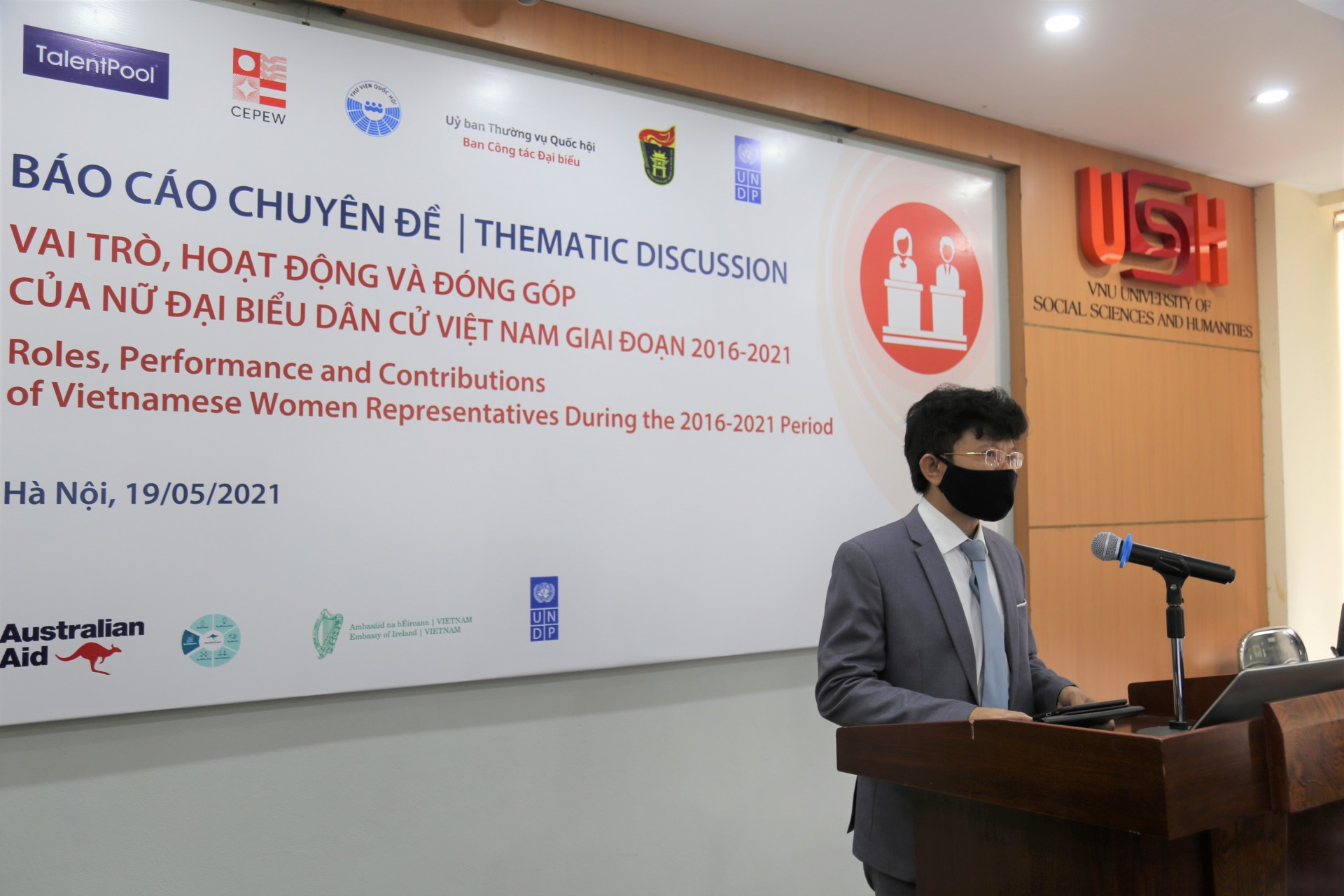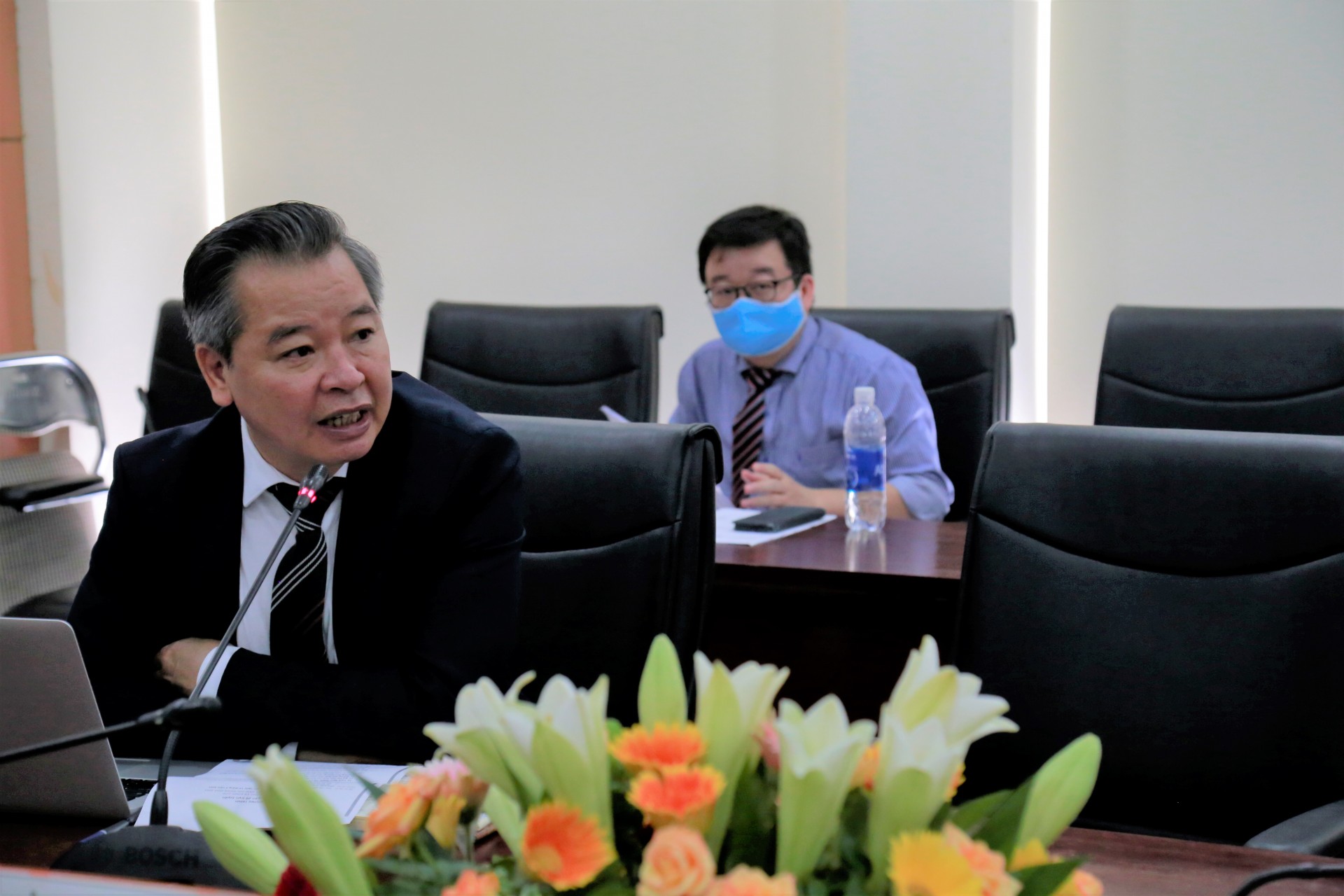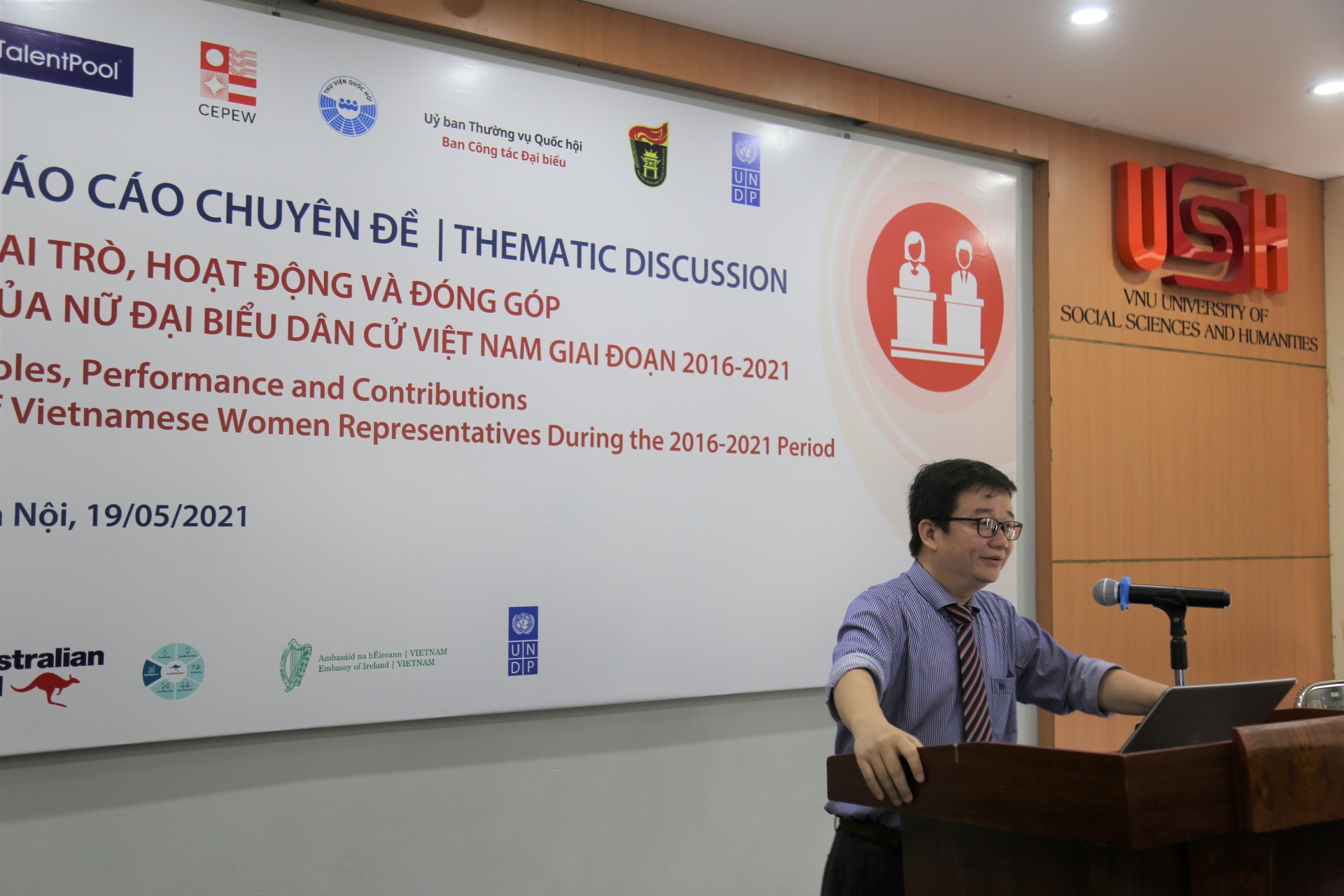The study was funded by the Australian Government’s Department for Foreign Affairs and Trade (DFAT), the Irish Embassy and UNDP in Vietnam, through the Provincial Governance and Public Administration Performance Index (PAPI) research framework. It provides empirical evidence of how female deputies of the NA and provincial People’s Councils have contributed to the socio-economical and political development of the country over the past five years.
The study was conducted with 248 deputies to the 14th NA (or 50 percent) and 136 provincial People’s Council deputies of Hanoi, Binh Phuoc province and Can Tho city. Based on qualitative and quantitative research data, the research suggests policy responses and actions to promote gender equity in people-elected bodies in Vietnam during the 2021-2026 period and towards 2030. A new study has confirmed the important roles and significant contributions of female deputies to the National Assembly and People’s Councils during the 2016-2021 term, and called on voters to select competent and qualified candidates, regardless of their gender.
 Ms.Diana Torrres speaks at the opening ceremony
Ms.Diana Torrres speaks at the opening ceremony
Speaking at the opening ceremony, Ms.Diana Torrres (UNDP Representative in Vietnam) shared the opinion of Ms. Elisa Cavacece (Deputy Ambassador and Development Counselor, Embassy of Ireland in Vietnam): "Women's leadership in the public sector is really important because it is essential to ensure that women's views and voices are included in the entire policy-making process. Every public policy needs to fully reflect the views of both women and men, in order to ensure equality and equity".
 Prof. Dr. Hoang Anh Tuan delivers his opening speech
Prof. Dr. Hoang Anh Tuan delivers his opening speech
On behalf of the USSH, Prof. Dr. Hoang Anh Tuan (Rector of USSH) remarked about the significance of the research as the upcoming election of deputies of the 15th Vietnam's National Assembly and deputies of People's Council at all levels for the 2021-2026 term was about to begin. The research findings and the exchanges of ideas at the launch would attract great attention from the public. Prof. Dr. Hoang Anh Tuan expressed his belief that the research findings would become useful references for state agencies in ensuring gender equality in their decision-making process. The Rector also thanked UNDP and domestic and foreign partners for supporting this research program. The University would hope to receive further accompaniment by the relevant organizations and agencies in similar studies.
After the opening session, Prof. Dr. Pham Quang Minh (Former Rector of USSH) and Assoc. Prof. Dr. Nguyen Tuan Anh (Deputy Dean of the Faculty of Sociology, USSH) briefly presented the findings of the study "Roles, activities and contribution of female elected representatives of Vietnam in the period 2016-2021".
The study shows that given that their areas of focuses and strengths are different, both male and female elected representatives noted that the interest of voters in their constituencies is the most important factor influencing their views of a specific issue.
 Prof. Dr. Pham Quang Minh introduces the study to the audience
Prof. Dr. Pham Quang Minh introduces the study to the audience
Women deputies more frequently engage with voters via social networking applications than men representatives. Both of them were confident that they had promptly responded to voters’ proposals and petitions. They noted that their top strength was in performing the legislative mandate. In the meantime, interviewed provincial People’s Council deputies, men and women alike, considered that oversight performance is the top strength.
In terms of values, both surveyed men and women representatives from the National Assembly and provincial People’s Councils valued the merits of ‘listening’, ‘having personal viewpoints’ and ‘having the ability to persuade others’. Women representatives tend to value the merit of ‘having the ability to persuade others’ than their men counterparts.
 Assoc.Prof.Dr. Nguyen Tuan Anh presents the findings
Assoc.Prof.Dr. Nguyen Tuan Anh presents the findings
“Women’s leadership in public sector is an important issue as it is essential to have women’s perspectives and voices involved in the decision-making process. Public policies should fully capture the perspectives of both men and women to ensure equity and fairness,” reiterated Elisa Cavacece, Deputy Head of Mission, the Embassy of Ireland upon the study findings.
The study recommends accelerating implementation of Resolution No. 26-NQ/TW adopted at the 7th plenum of the 12th Party Central Committee which put it that by 2030: “There must be women representatives in the Standing Committee of the Party at provincial level and Party committees at all levels: the proportion of women representatives at all levels should be between 20 and 25 percent. The rates of women representatives in the National Assembly and People’s Councils should be over 35percent”. To do so, the report suggests having at least 45 percent of candidates of either gender enlisted as candidates for the NA and People’s Councils, building on the current momentum of having 45.28 percent of candidates for the 15th NA.
The study also recommends creating favorable conditions for elected representatives to proactively engage with voters via all channels, especially social networking channels.
In addition, it suggests that elected women and men deputies participate in all fields by introducing gender quotes for all NA and all People’s Councils committees.
After the findings were presented, the seminar continued with two discussion sessions.



